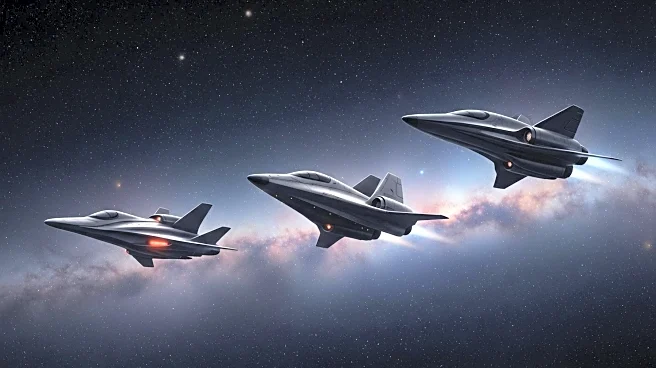What's Happening?
NASA is set to launch three new spacecrafts into orbit with the aim of enhancing the understanding of the solar system, the sun, and Earth's weather patterns. This initiative is part of NASA's ongoing efforts to explore and gather data on space weather and planetary systems. Dr. James Spann, a Senior Scientist for Space Weather at NOAA, discussed the mission on Good Morning Washington, highlighting the significance of these launches. The spacecrafts are scheduled to be launched from NASA facilities on Tuesday morning, marking a significant step in space exploration and research.
Why It's Important?
The launch of these spacecrafts is crucial for advancing scientific knowledge about the solar system and improving weather prediction models. By studying space weather, scientists can better understand solar phenomena that affect satellite communications and power grids on Earth. This mission also contributes to the broader field of planetary science, potentially aiding in the discovery of new celestial bodies and enhancing the understanding of planetary formation. Stakeholders in the fields of meteorology, astronomy, and space exploration stand to benefit from the data collected by these spacecrafts.
What's Next?
Following the launch, the spacecrafts will begin transmitting data back to Earth, which will be analyzed by scientists to gain insights into solar and planetary phenomena. The mission is expected to provide valuable information that could lead to advancements in space weather forecasting and planetary science. Researchers and institutions involved in space exploration will likely continue to monitor the progress and findings of this mission, potentially leading to further missions and studies.
Beyond the Headlines
This mission underscores the importance of international collaboration in space exploration, as data from these spacecrafts could be shared with global scientific communities. The ethical considerations of space exploration, such as the impact on space debris and the environment, remain a topic of discussion among scientists and policymakers. Long-term, the mission could influence future policies on space exploration and international cooperation.









